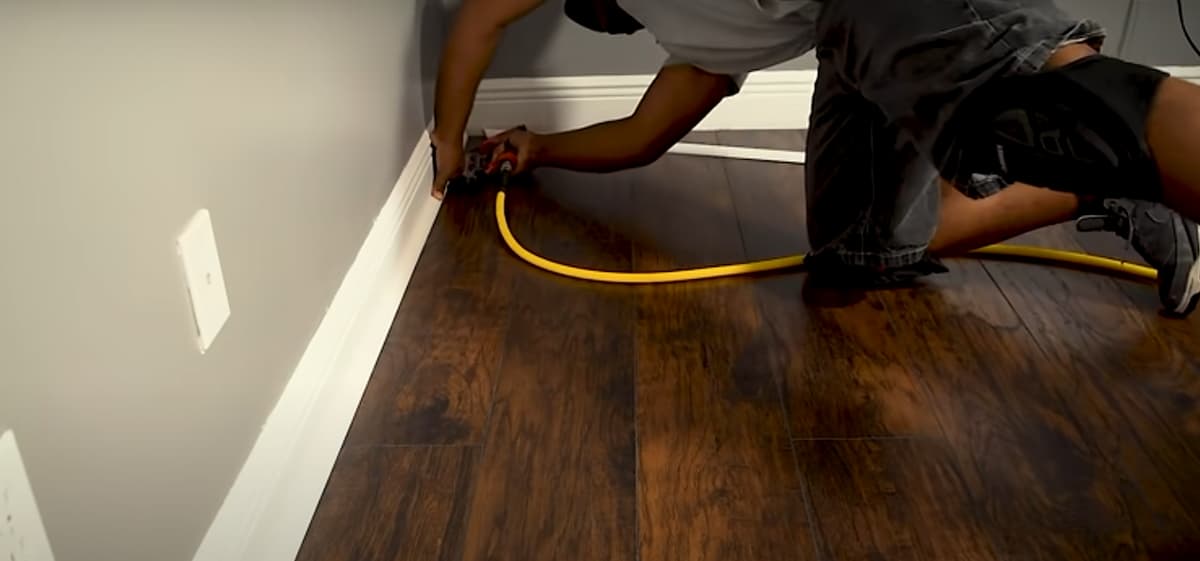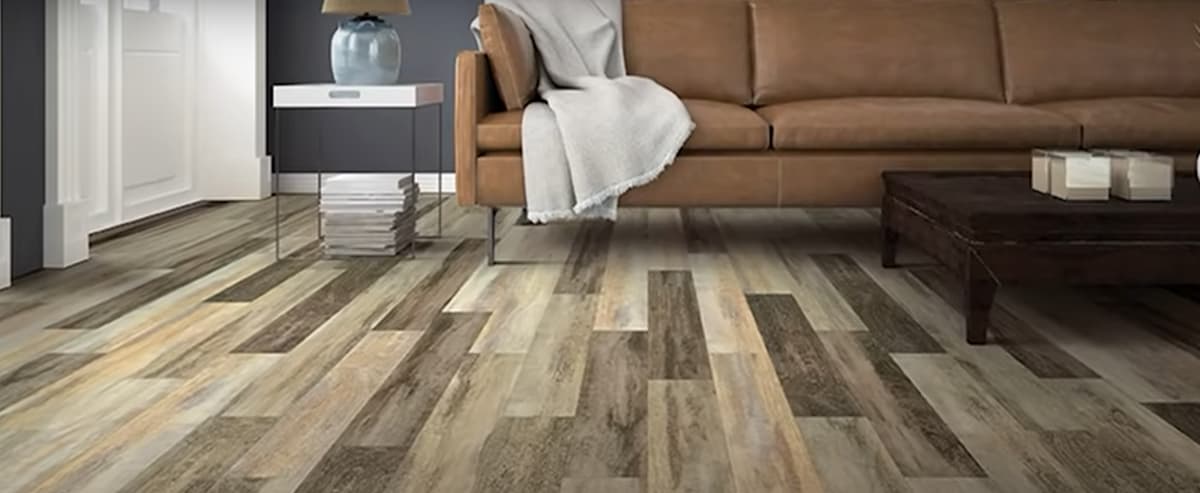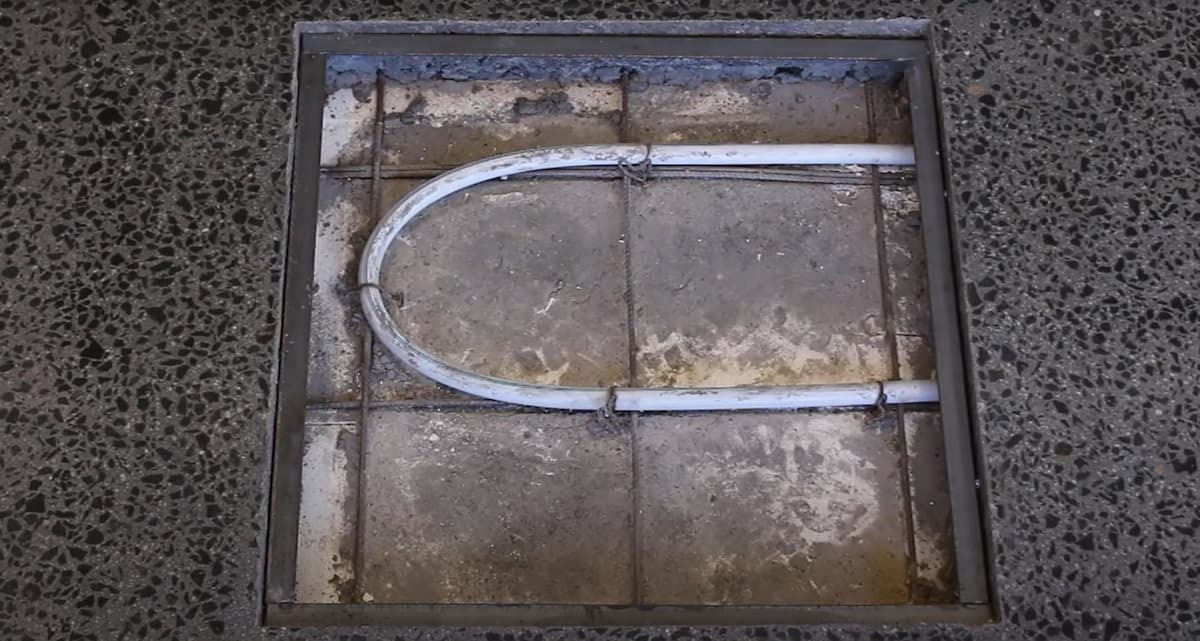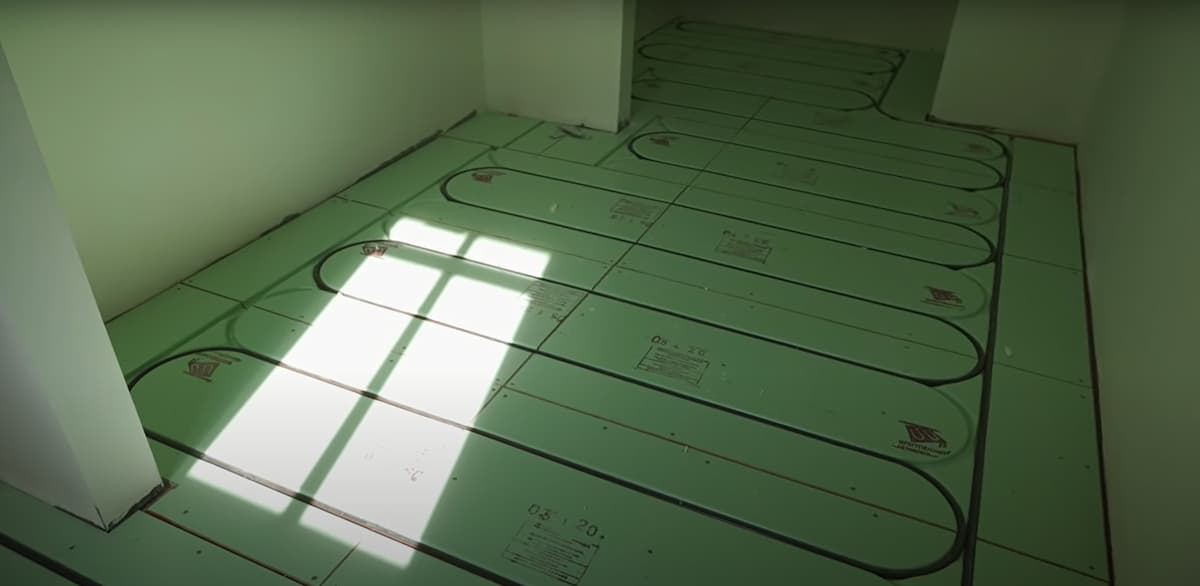
You are probably here because you are looking for ways to make your basement or bathroom stand out. You have an issue with choosing which flooring option may work best for the space, bamboo flooring or, floor tiles.
Whichever one you choose, you need to know that they both look great and you do not have to worry about durability either way. Both bamboo floors and tiles are long-lasting so pick the style that fits your décor better.
Other Common Materials Used for Flooring in Australia
The most common materials are timber flooring such as hardwood flooring, vinyl flooring, carpet and more. Engineered hardwood flooring is also common.
- Timber floors have a natural touch that no other floors have. Timber floors give the room a soft and calm feeling.
- Hardwood flooring has a soft touch and may make the room look bigger. The colours choice for hardwood flooring is endless, but if it’s not sealed, it’ll lose its shine and colour and may become dull.
- Vinyl floors are very easy to maintain. They are ideal for kitchens and bathrooms.
- Carpet floors do not show dirt easily but they can get smelly over time. Carpets are usually popular in the bedrooms.
Types of Bamboo Flooring
The most common type of bamboo flooring is called “strip”. This type can be cut to fit the space you are using just like tiles.
Other types include solid bamboo where you can’t cut it, pre-glued planks that are easy to install and floating flooring options. Strand woven bamboo flooring is also a popular option, as well as engineered bamboo flooring.
Difference Between Bamboo Flooring and Floor Tiles
Bamboo flooring is made of bamboo grass that has been flattened, glued into planks and then covered in polyurethane for protection.
Tile flooring is made of ceramic material over a cement board. It offers many colour options but also can have very intricate designs.
Advantages of Bamboo Flooring
One of the advantages of choosing bamboo floors is that it requires no glue or nails to install while the tile may need the previous existing floor removed first before installation. Also, some styles are resistant to moisture which would make it an ideal choice for bathrooms where there may be water spills on the surface daily. Bamboo fabrication provides an eco-friendly alternative to resin or plastic products found in most home improvement stores.
Tile flooring is more resistant to the daily wear and tear of being in a busy household. It is also low maintenance as it does not need to be glued or nailed down, only grouted during installation.
Disadvantages of Bamboo Flooring
Bamboo can expand and shrink depending on humidity levels so it needs careful consideration if you live in a humid climate. For example, over time your planks may become loose around the edges or buckle which may require repairs or even replacement of some boards. Even though bamboo floors are great for the environment they do require much higher costs than traditional flooring materials such as ceramic tiles and wood.
Advantages of Tile Flooring
Ceramic tiles come in many styles and colour options so they can easily match the existing décor of your home. They do not need to be glued down so installation is quick and easy compared to bamboo floors. Ceramic tiles are also much cheaper than bamboo flooring which can save you money in the long term.
Tile flooring is waterproof so it may hold up well even if exposed to water but it does have a higher price tag than most other types of materials used for flooring in homes today. It comes in many different styles, colours and sizes so you can choose what works best for your space and budget requirements.
Disadvantages of Tile Flooring
The main disadvantage that comes with using ceramic tiles in a space such as a basement or a bathroom is that they offer no heat insulation, regardless of any claims made by companies that make ceramic products. The cold concrete floors may suck away any warmth your body may have while you are washing up or getting ready for the day ahead.
Another disadvantage to using tiles is if there are water spills it can be difficult to clean up. If there is enough water, it could cause the grout between the tiles to expand and then crack. This would then require repair work, not an easy fix either because you would need to tear up all of the surrounding tiles in order to get at the source of the problem. Ceramic flooring does not offer insulation against heat transfer so if you are looking for a warm, cozy area then this surface would not be appropriate in most cases. It is great for living rooms but not in areas where there is a high risk of water spills.
Floor Tiles vs Bamboo Flooring
Both floor tiles and bamboo flooring offer many positive attributes that make them great options for home décor. Both are good looking on the eye, easy to install and require low maintenance. The main difference between these two products is that tile can be used in more areas of your house whereas bamboo floors are not suitable for bathrooms due to the potential water damage it can cause over time. Tile flooring is more likely to be damaged due to the grout that holds the tiles together, while bamboo floors are more susceptible to water damage. Tile floors are also much cheaper when you compare prices to bamboo flooring.
Difference Between Floor Tiles and Bamboo Flooring
In the current days when people are willing to spend much time in their living room and bedrooms, flooring has become a significant part of the decoration of their home.
There is a need of having durable and easy-to-maintain floorings that can easily resist scratches and stains. The bamboo flooring comes up with such benefits that make it popular among people for decorating their homes. However, there is an alternative known as tiles (porcelain) which also meet all requirements needed for durability and maintenance-free nature.
Bamboo Floors vs Ceramic Tile, Pros and Cons
Both options could be your best choices if proper considerations are taken into account while selecting one of them. You may consider things like design, durability and installation process before making a final decision. In this article, I may highlight the significant points of difference between these two flooring options so that you can make a better choice keeping your budget and requirements in mind.
In this article, I may discuss both types of flooring with their advantages and disadvantages as well as costs associated with them before finally deciding which one is best for you according to your taste and budget.
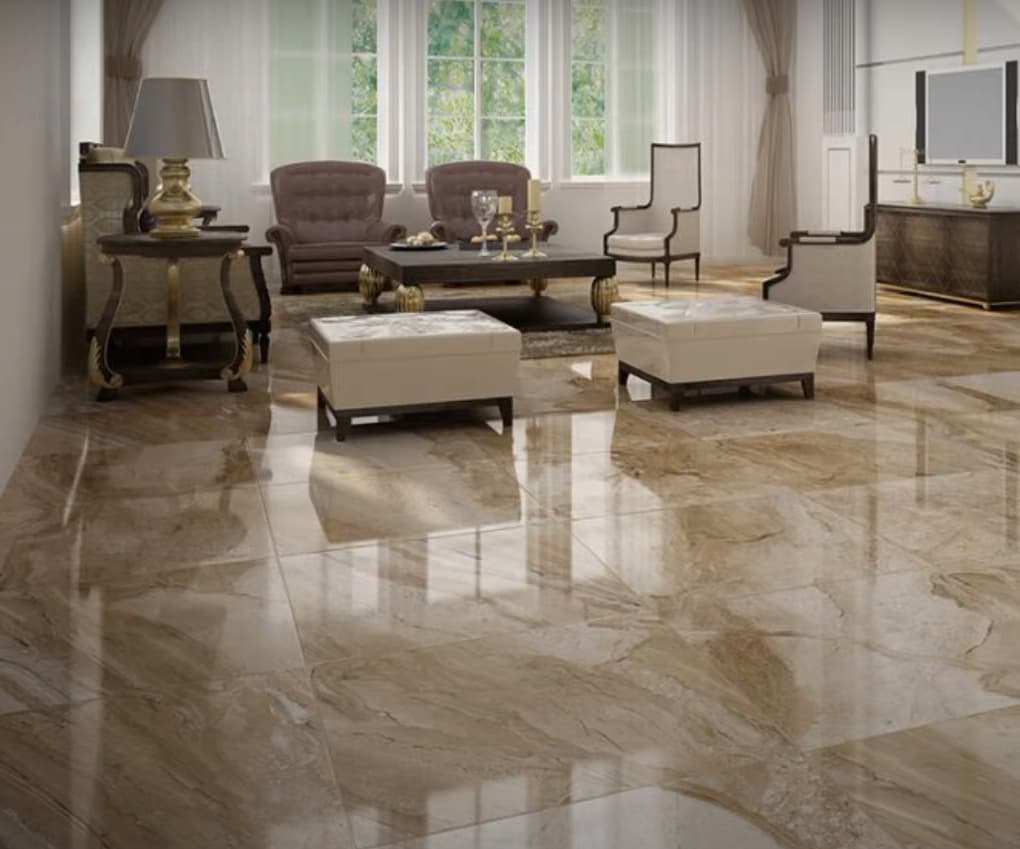
Durability Difference Between Floor Tiles and Bamboo Flooring
If we talk about durability then there is no competition because bamboo floors have got the upper hand over ceramic tiles. Moreover, they are anti-scratch resistant which means it would be easier for you to maintain them as compared to tiles. It may result in fewer repairs as scratches caused by chairs, couches or any other furniture can be easily covered up by new bamboo flooring.
Resistance Against Stains Difference Between Floor Tiles and Bamboo Flooring
Bamboo floors are much more resistant to water as compared to ceramic tiles. It would not absorb any moisture which makes it much easier to clean up any spills on them.
Flexibility in Designs Difference Between Bamboo Floors and Floor Tiling
The design of bamboo flooring is flexible because you can place it anywhere whether inside the house or outdoors. Moreover, if you consider installing one outdoors then this would be your best option because they are weather-resistant and need less maintenance than tiles. On the other hand, tiles need to be sealed regularly so that they don’t lose their shine after some time.
Installation Process Difference Between Bamboo Floors and Floor Tiling
Tiles require professional help for installation while anyone with relevant skills can install the bamboo flooring on his own.
Ease of Installation Difference Between Bamboo Floors and Floor Tiling
Another significant benefit of bamboo over tiles is the ease of installation. Regularly you may see that people are preferring a bamboo floor due to its simplicity of installation. Moreover, there are fewer chances of breaking them while installing which makes it one of the best options for ordinary people who lack professional skills in tiling or carpentry which is needed for timber floors. Strand woven bamboo floors are easy to install as compared to other types of flooring.
Cost Difference Between Floor Tiles and Bamboo Flooring
Tiles are costlier when compared to bamboo floors. It may vary depending upon the type of tiles you choose. Generally, tiles are priced higher than bamboo floors due to their better durability and performance.
Burning Resistance Difference Between Bamboo Floors and Floor Tiling
Bamboo is considered more fire-resistant than ceramic tiles so if this is your primary concern then it would be the best choice for you.
Maintenance Costs Difference Between Bamboo Floors and Floor Tiling
Both require low maintenance but there are some extra efforts required while maintaining the bamboo flooring whereas ceramic tiles need similar care as wooden or laminate floorings. However, considering that bamboo floors don’t absorb any moisture these would remain clean with less work on your part, unlike tiles which get stained quickly.
Water Resistance Difference Between Floor Tiles and Bamboo Flooring
Bamboo is a kind of wood which means it is water-resistant and perfect for placing in the kitchen or bathroom where there is a high risk of exposure to moisture. Ceramic tiles would not be able to resist water as much as bamboo floors do because both are made with different materials.
Colours and Styles Difference Between Bamboo Floors and Floor Tiling
Bamboo is a kind of wood with many different colours and designs available. On the other hand, ceramic tiles come in a limited number of colours but they are perfect for creating beautiful patterns by arranging them in different forms.
Shock Absorption Difference Between Floor Tiles and Bamboo Flooring
Ceramic tiles are not able to absorb shocks as well as bamboo floors do.
Soundproofing Difference Between Bamboo Floors and Floor Tiling
Tiles don’t provide good soundproofing while bamboo flooring reduces noise and provides you with a peaceful place for living or working. When placing the furniture on the bamboo floor it would be perfect for reducing sound which can otherwise become annoying if there is a lot of noise outside your house.
Clinging Capacity Difference Between Floor Tiles and Bamboo Flooring
Tiles have good clinging capacity but bamboo flooring makes use of glue which can harm the environment if not disposed of properly. So, bamboo floors are considered eco-friendly while tiles aren’t.
How to Choose the Best Flooring Material?
Now that you have read about the benefits of both these materials it’s time for you to decide on one. Considering that bamboo floors are better than tiles in many aspects, they are most likely your best option unless you want to go with tiles for design purposes or something like that. You may consider consulting an expert before taking any decision because the manufacturer may offer excellent services and a warranty.
What is Better? Bamboo Flooring or Ceramic Floor Tiles
In this article, we discussed both types of flooring with their pros and cons so that you can make a better choice keeping your budget and requirements in mind.
Both options could be your best choices if proper considerations are taken into account.
In order to decide which one would be most suitable for you, you may maintain certain things in mind including the design of your house, durability requirement, budget and most importantly your personal taste and style. Many people prefer bamboo flooring because they can install it easily on their own but if you think that laying tiles could be a better option for you then this could be taken into consideration before making a final decision.
Considering these things is very important because it can affect your experience. A flooring material that looks good on paper may not be of any use to you if you are unable to maintain it properly or cannot afford it, so choose wisely.
To summarize, both tiles and bamboo floors have got their own benefits but there are many people who consider the latter to be better. Actually, both of them are great options and it is your preference which one you choose.


